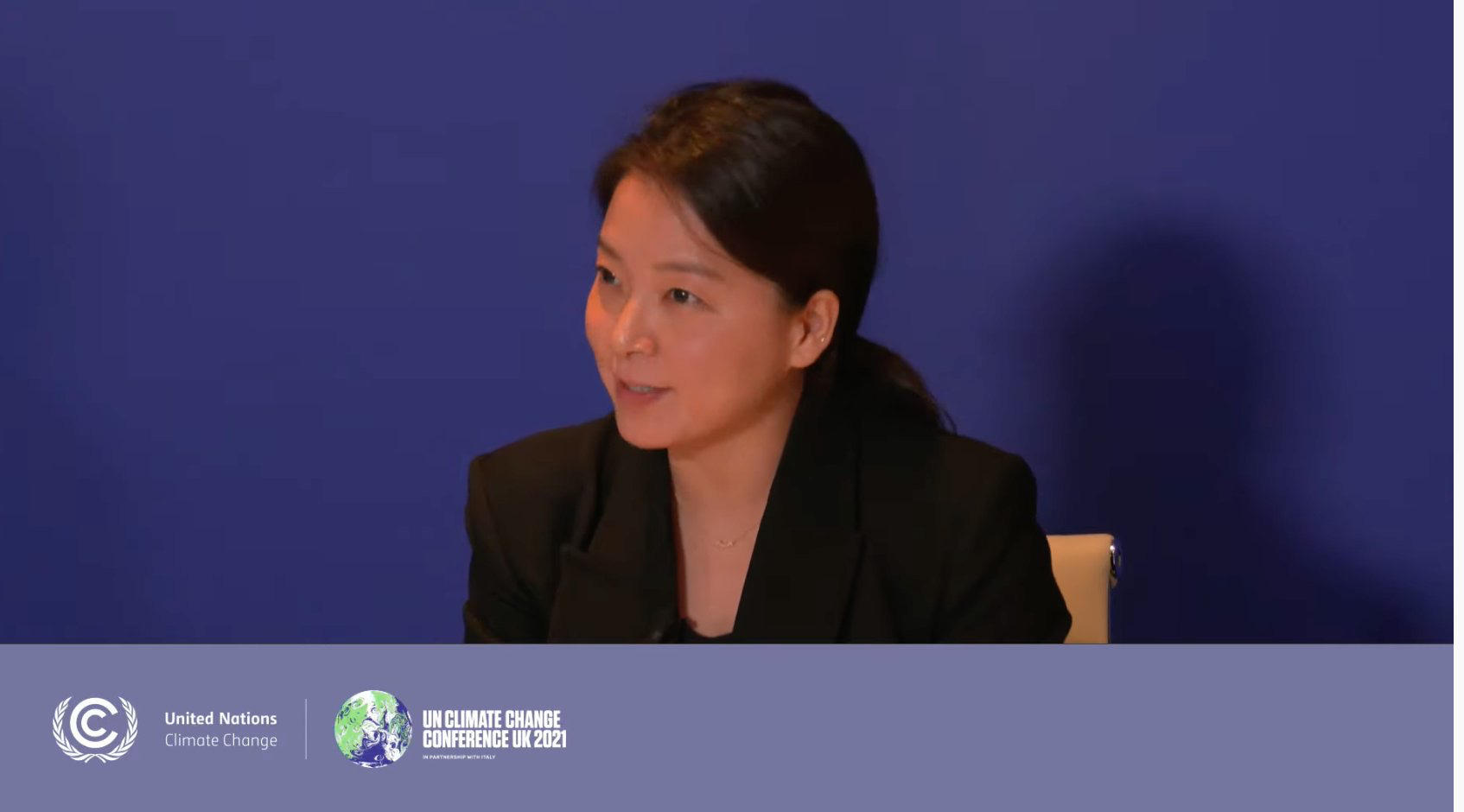If there’s one thing that COP26 demonstrated, it’s that the global power players, namely governments and businesses, are feeling the heat – not from global warming necessarily, but from the growing political and societal demands for institutional change. From shortened net-zero timelines to environmental pledges to the upping of financial commitments, the U.N. Climate Conference in Glasgow was stage for many promises to mitigate the climate crisis.
But many, such as Margaret Kim, while happy to see these pledges, are yet to celebrate. Kim is the CEO of Gold Standard, a foundation that puts forth ways for entities to quantify, certify and maximize their impact on the climate and sustainable development, to not only track the good efforts that are being made but to also optimize the mediocre and stop the bad.
“The needle is finally moving from ‘millions to billions’ to ‘billions to trillions,’” says Kim on the recent uptick in climate finance. “But with this commitment comes the risk of greenwashing. Moreover, we can’t afford to underachieve with the dollars, euros, and pesos we’re directing toward these goals.”
In her position, Kim is now one of the foremost leaders in the field of sustainable finance and monitoring and evaluation. Her journey started when she was a young girl, raised in both the U.S. and South Korea. “Having been brought up in two very distinctive countries and therefore cultures, I witnessed growth and expansion on each country’s respective terms.”
This led her on a career path around the world, putting on a number of different hats as an employee and advisor to major corporations, SMEs, international organizations and governments. Along the way, she has worked with Micronesian fisherman, Ethiopian coffee farmers and Indigenous landholders in Papua New Guinea to name a few, witnessing first-hand the costs of economic growth on environmental integrity and social inclusion. Her desire to change this is what ultimately landed her at Gold Standard in 2019, with aspirations that couldn’t be higher for its hand in holding climate actions up to the light.
“While I am very happy with the progress we are making at Gold Standard, it is not enough,” she says. “We need to mainstream impact reporting more broadly across the financial sector. This is about much more than just reporting outcomes at the end of a project or program. To both avoid risk and maximize positive impact toward the Paris Agreement and the Sustainable Development Goals, Gold Standard’s role starts at the very beginning and is embedded throughout the process.”




